In order to prevent cheating in the imperial examination, what examination systems were set up in 1300 years?
[Editor’s note]The imperial examination system is the most important talent selection system in ancient China society. From Sui and Tang Dynasties to the end of Qing Dynasty, the imperial examination system lasted for more than 1300 years in China, which had a profound influence on ancient China society in many aspects. In 1905, the Qing court announced the abolition of the imperial examination system that lasted for 1300 years. 2015 marks the 110th anniversary of the abolition of the imperial examination system, and A General History of Chinese Imperial Examination System was also published a few days ago.
The General History of Chinese Imperial Examination System is edited and led by three scholars, Zhang Xiqing, Mao Peiqi and Li Shiyu, with five volumes and 4.52 million words. The general part comprehensively discusses the profound influence of the imperial examination system on ancient China society, the significance of studying the imperial examination system and the different characteristics of the imperial examination system in each period, and then divides it into five volumes: Sui, Tang and Five Dynasties, Song, Liao, Jin and Yuan Dynasties, Ming and Qing Dynasties. This article is selected from the General History of Chinese Imperial Examination System, written by Mao Peiqi, one of the chief editors and a professor at the School of History of Renmin University of China, and authorized by Shanghai People’s Publishing House.
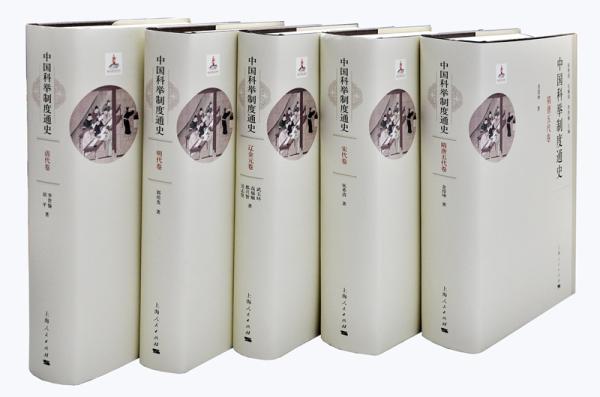
The original intention of the imperial examination was to recruit scholars fairly, but almost at the same time as the birth of the imperial examination, all kinds of fraud and tricks against fair competition appeared. Therefore, preventing fraud was an important content in the imperial examination system from the beginning.
In order to ensure the fairness of taking candidates, the Tang Dynasty constantly improved the procedures and evaluation standards of the imperial examinations and took measures to prevent cheating in the imperial examinations. In terms of examination procedures, the provincial examination in the Tang Dynasty gradually established a three-examination system for general subjects such as Jinshi and Mingjing, so as to avoid fraudulent acts such as taking the back-court examination after failing in the previous field from the technical level. In the Five Dynasties, this three-test system was introduced to state and county examinations. In the Tang Dynasty, in order to prevent cheating in the examination venue, the system of locking the examination venue was implemented, and a tribute seal was set up to prevent it from being prohibited. In order to ensure the fairness of marking, the system of reexamination and re-examination under the Chinese book door was established, and the supervision of provincial examination was strengthened at the same time.
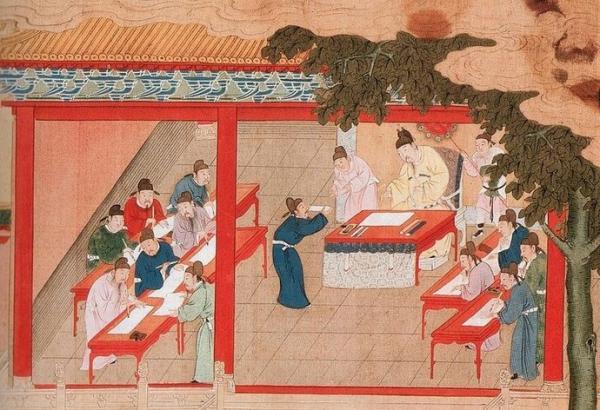
However, the imperial examination in the Tang Dynasty can not be said to be perfect and mature. At the beginning of the implementation of the imperial examination in the Tang Dynasty, there was still a system of public recommendation, that is, the so-called "Taige officials" could recommend "literary artists" to the examiners, and even pre-planned the rankings on the list. Candidates should present poems and essays to dignitaries, that is, the so-called "scrolls", for recommendation. Some influential figures are even called "the task of the article, the balance of the characters, once the title is tasted, they will become good scholars." However, these dignitaries "can’t be selfless when they take it", which opens the door for the children of aristocratic families to have power, and even admits "don’t take advantage of their relatives, don’t take bribes, and make friends". Those who "have no media, no party, and have talents" are often turned away.
In Li Bai’s Book of Jingzhou with Han Dynasty, it is said that "I don’t need to seal Wan Huhou when I was born, but I hope to know Jingzhou with Han Dynasty", and Qian Qi’s poem "yet whose poems, ten years refused, are shaming, these white hairs held by the petalled pin" describes the helplessness of scholars. Some dignitaries rely on their power to openly ask for help in the imperial examination, which is more serious than cheating in the examination hall, and cheating in the examination hall has become the norm, so that "children of potential families are rewarded with each other;" The situation in which the cold door is made, ten abandoned 67 ".
In the first year of Changqing (821), Qian Hui, assistant minister of the Ministry of Rites, gave a tribute and accepted the request for help. The admission was unfair and caused dissatisfaction. Mu Zong ordered a retest. As a result, of the 14 people who have been admitted, 10 were dismissed because of their lack of skills, and those suspected of asking for help were dismissed from office. In the third year of Huichang (843), Wang Qiquan, the minister of rites, made a tribute, and put forward that "anyone who has relatives in the DPRK should not be promoted", which temporarily restricted the way for the children of officials to enter the official position. However, after repeated attempts, it was finally impossible to stop the children of officials or officials from asking for help and the authorities from selling them.
The imperial examinations in the Tang Dynasty and the Five Dynasties also had a public examination system. In order to make the examiner know the applicant’s ordinary academic level, the applicant should submit the provincial paper, that is, the "public paper", to the Zhigong Ju official. Doing so could have examined the level of scholars more comprehensively, avoiding the fluke and unfairness of deciding to take the exam only once. However, the public papers can’t be guaranteed to be true, and there is no way to supervise and inspect them, or to use old papers or ask someone to write for them. On the contrary, there are huge loopholes, which hinder the fairness of the exam.
In order to realize the fairness of the imperial examination, the Song Dynasty continued to improve its system and technical design. At the beginning of the Song Dynasty, the public recommendation was abolished many times, stipulating that the recommender should be punished, and the recommended person should be punished for heavy service, and he should never take the imperial examination again, and the informer should be rewarded. The system of "public recommendation" and "public volume" was abolished, and "everything depends on Cheng Wen".
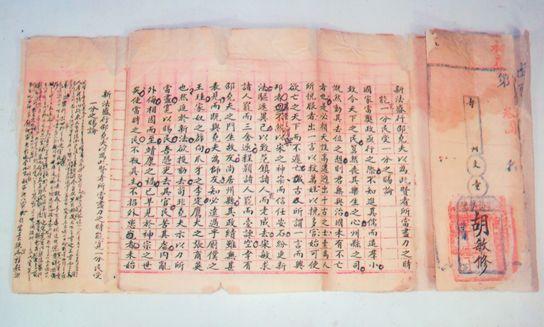
Ancient imperial examination papers
The imperial examination hall is like a battlefield. As early as the Tang Dynasty, strict discipline was stipulated. "On the day of reading and testing, the Ministry of Rites strictly set up soldiers and guards, recommended spines around them, searched for clothes, and ridiculed them. In case of false abuse. " But cheating in the examination hall is endless. In order to prevent cheating in the examination field, the Song Dynasty made a series of technical regulations. In 992, Injong was in Chunhua for three years and began to implement the "paste name examination". The test paper is sealed with a paste name, and the township is marked with a font size. During the reign of Emperor Zhenzong, a transcription system was implemented, and the examination papers were transcribed separately, and then sent to the examiner for grading. In this way, the examiner neither knows the name of the juren, nor can he identify the author with the font, so it is difficult to ask for help. Ouyang Xiu praised: "Stealing the system of taking scholars from the state is the most famous compared with the previous generation. ….. Paste the name, copy it and test it, so that the master doesn’t know who the party is, and whose son is not allowed to love or hate it. ….. its ruthlessness is like nature, and its fairness is like weighing. It has not been easy to control since its ancestors. " He believes that this is the most just system.
In the second year of Song Taizong’s reign of Emperor Yongxi (985), the system of "don’t try" was established, in which the examiner and juren were in-laws, and officials were sent to set up another examination room to try. In the sixth year of Xiaozong Road (in 1170), "the examiners of all the imperial edicts were selected by different counties, and then he was admitted to the hospital in Hefei, three counties." But at this time, the examiner in palace examination is still avoiding relatives. In the first year of Jiading, Ningzong (1208), "those who have relatives of the officials of the DPRK to go to the court will be exempted from taking the exam." This set the rules for future generations.
In 1228, the first year of Emperor Li Zong’s reign in the Southern Song Dynasty, he opened a subject, and found that a certain volume of characters was similar to people, even verbatim. The reason is that the examiner takes bribes, steals the model essay to the examinee, or the old Confucian sells the essay to the scholar for copying. The imperial court had to stop this, and ordered that once the test papers were found to be identical, the candidates would be dismissed, and the examiners and supervisors would also be dismissed. When Li Zong was in charge, the examination hall "made the rape worse". "There are five disadvantages in citing people: to preach righteousness, to change papers, to change titles, to go out with papers, and to record and destroy cracks." The court ordered strict supervision, "set up a reward grid, and promise to arrest those who are pregnant, pass on the topic, pass on the manuscript, and take the test on behalf of the whole body."
The imperial examination room system in Jin Dynasty was strict. The rules of the examination center, such as pasting names and copying, generally followed the practice of the Song Dynasty.
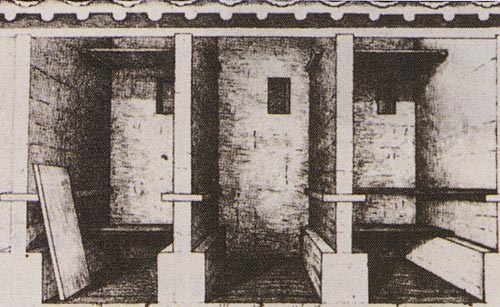
Inside imperial examination Hiram’s hospital
Cheating in imperial examinations was rampant in Ming and Qing dynasties. "Bribery, earning a living, cutting the volume and passing it on, and taking the top name, have many drawbacks, which cannot be exhaustively investigated, especially the joints." Therefore, the anti-fraud measures of the imperial examinations in Ming and Qing Dynasties are also more severe. For example, the examinations in the Ming Dynasty were monitored by censors, while the examinations were monitored by officials of the Ministry of Justice. At the time of the examination, Yushi will supply the examination paper, seal it, transcribe it, read it, take the paper, patrol the door, check it, and have full-time staff. It is strictly forbidden to ask questions in the examination room, and each candidate has a separate room guarded by a soldier. The test paper is sealed and numbered in triplicate. The examination paper is written in ink, and then copied by the copying officer in Zhu. The reader doesn’t know the name of the examinee, and he can’t see the ink roll. It can be said that he is everywhere. In the seventh year of Hongwu (in 1374), it was stipulated that if the examinee was found with a belt, "in January before the court, he would be guilty all the time and be rehabilitated for the people."
However, as "Ming Shi" said, cheating is "joints are the most serious", and court cases occur from time to time. Some powerful officials or relying on their power, enabled their children to go to high school, or greedy for bribes, and decided to take them with money, which fundamentally ruined the fairness of the imperial examination. In the fourth year of Wanli (1576), Gao Ruyu, the examiner of Shuntian, admitted Zhang Sixiu and Zhang Maoxiu, the sons of Zhang Juzheng, the cabinet records of the powerful minister, and Wang Zhiheng and Wang Zhiding, the sons of Wang Zhuan, the assistant minister of Zhang’s party official department, which are typical cases.
Fraud in the imperial examinations was still rampant in the Qing Dynasty. In the 14th year of Shunzhi (Ding You, 1657), a major imperial examinations case broke out. After the trial release of the list in Shuntianfu Township, it was revealed that Lu Qixian, a Chinese juror, paid 3,200 taels of silver, and Lu Yiji, a fellow examiner, gave Li Zhenye and Zhang Wopu a bribe to buy them. After the results of the township examinations in various places were published, scholars resented their unfairness and exposed all kinds of fraudulent plots: Jiangnan "is well-connected with the Sect, which is to take the opportunity to benefit the disadvantages"; Huang Wei and Ding Peng, Henan examiners, used ink and pen to add sentences; Shandong, together with examiner Yuan Ying, changed the words with a blue pen; Shanxi examiner Kuang Lanxin and other comments are not listed in the title, and so on. Emperor Shunzhi ordered the Legal Department to investigate the proposed crime.
As a result, seven examiners, including Li Zhenye, Zhang Wopu, and Juren Tian Geng, were all beheaded, with no family property, and their parents, brothers and wives all moved to Shangyangbao. In addition, seven people, including Wang Shude, should immediately cut off their family property, and their wives, parents and brothers should emigrate to Shangyangbao; Eleven people, including Sun Po-ling, should be beheaded, and their family property is not registered; Zhang Min and other five people should be stranded, and Yu Zan Zhou should be stranded. Emperor Shunzhi personally interrogated him, saying, "If you commit more crimes for a while, you can’t bear it." All of them were lenient and exempted, and each of them was responsible for forty boards, and they moved to Shangyang Castle.
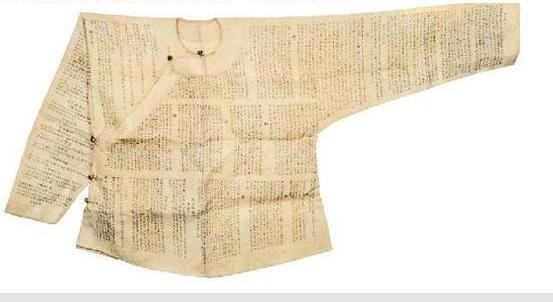
Ancient imperial examination with jacket
However, the fraud in the examination hall did not stop there, and all kinds of fraud continued to occur. In the eighth year of Xianfeng (1858), another major case shocked the ruling and opposition parties. At that time, he was in Wuwu, so he was also called the case of Wuwu examination hall. The rural examination in Shuntian, an undergraduate course, was caused by the suspected fraud of Ping Ling, a student attached to Manchuria. It was exposed that Luo Hongze, a candidate, "handed a note" into the examination room, and asked Li Heling, the director of the Ministry of War, and the Hanlin Academy to edit Pu ‘an, and Pu also asked Bai Jun, a university student, so that Luo was able to pilot. Li and Pu got 500 taels of silver, but Bai Jun didn’t know it. As a result, Pu, Luo, and Li were executed as usual, and Bai Jun was executed by "Gu Enwei Law". The murder of Bai Jun, a minister with a taste, is related to the personal hatred of his colleagues, but his responsibility cannot be escaped. It took five years for the case to be concluded. In the end, more than 90 people were punished and five military ministers were killed.
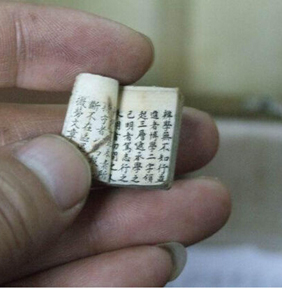
Ancient imperial examination cheat sheet
The purpose of the Qing court’s severe punishment for cheating in the imperial examination hall was to strictly observe the law and discipline, and to recruit scholars fairly. At the same time, the intention of restraining scholars and cracking down on factional strife was also obvious. Previously, the imperial edict issued in the 14th year of Shunzhi (1657) said: "It is a public code of the imperial court to make a system of selecting scholars and recommending sages by teachers … In the future, all officials, both inside and outside, should strictly abide by their duties and are not allowed to worship their proteges. If they commit crimes, they will be judged by their backs. Recommend all the officials, according to the system of the yamen, and all the items such as reading papers and exams are not allowed to attack the teachers and students … and never leave the roots of cronies. " Controlling the imperial examination hall means strengthening the control of the political situation and the power of the emperor.
Parallel to these major fraud cases is the disadvantage of the examination hall. Since the implementation of measures such as pasting names and copying in the Song Dynasty, the disadvantages of cheating and anti-cheating in the examination hall have been on the rise. As for the Ming and Qing dynasties, it reached its peak. This kind of cheating has formed a complete chain inside and outside the examination hall, and even become an industry. In order to cope with the imperial examination market, various imperial examination model essays became popular, and many scholars became experts. Some bookstores even print micro-engravings for the purpose of bringing people into the venue. As for the entrainment method, it is even more varied. Clothes, objects, pens, inkstones, paper and ink can all be used as entrainment tools, and even inclusions are hidden in obscene clothes.
In order to punish the disadvantages of entrainment, Emperor Qianlong once issued a decree that "the commander of the infantry and the censor of the five cities should show Xiaoyu and conduct a secret inspection", and sent military service to search and inspect at the scene, so that the clothes and trousers of the entrants were stripped bare. In the ninth year of Qianlong (Jiazi, 1744), the rural examination in Shuntianfu was held, and 21 people were found in the first and second sessions. Due to the deterrent of search and inspection, a large number of small rolls of flies were abandoned in every corner outside the Hiram’s Hospital. In the second roll call, more than 2,800 people were afraid to take the entrance examination. However, 68 people who took the entrance examination turned in blank papers because there was no entrainment, 329 people did not finish the papers, and 276 people were irrelevant. Such a scene not only shows the seriousness of entrapment, but also shows that Shi zhong ren is very abusive. After this campaign, the entrainment in the examination hall was slightly calm, but it soon revived. Almost to the end of the Qing Dynasty, the imperial examination came to an end, and the examination was a mere formality.
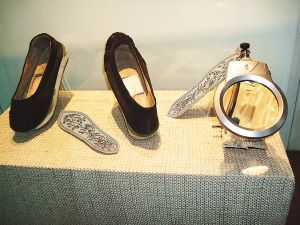
Entrainment shoes for cheating in imperial examinations
The imperial examination claims to be fair, but the fairness of the imperial examination is also relative. As a multi-ethnic country with a vast territory, there are great differences among regions and ethnic groups. If all students are selected according to the same standard, it may lead to unequal opportunities. At the same time, in order to expand the ruling base, it is also necessary for each dynasty to extensively select talents and select talents from different regions and nationalities. This can not only make the representation of scholars more balanced, but also take care of the relative fairness of different regions and different nationalities. At the same time, it is also a common practice for rulers to give preferential treatment to specific groups or ethnic groups in order to strengthen their political power pillars.
There is a so-called south election in the civil and military official examination in Tang Dynasty. In the Tang Dynasty, the number of candidates in remote and backward areas was taken care of. In Song Dynasty, the distribution was restricted by the number of settlements in different regions, so as to achieve the balance between regions. In the fifth year of Emperor Taizong of the Jin Dynasty (1127), because "Hebei and Hedong fell at the beginning, and there were many staff members, the system of Liao and Song Dynasties was different, and the north and south were chosen for their careers." According to different standards, the new and old areas in the north and south take care of regional and ethnic differences. The imperial examinations in the Yuan Dynasty were divided into two volumes, including some factors that discriminated against Han people and southerners, but it also expanded the ruling base and sought balanced and fair consideration of differences.
In the imperial examinations in the Ming Dynasty, there was no distinction between the north and the south. In the thirty years of Hongwu (1397), he took 52 scholars, all of whom were from the south. Emperor Zhu Yuanzhang thought that the examiner was a southerner and was partial, so he severely punished the examiner and read the papers himself. As a result, 61 people were admitted from the North.
After Yongle, after several adjustments, it was determined that the scholars were divided into south, north and middle volumes. This not only adjusted the pattern of interest distribution, took care of the development of backward areas, but also made the foundation of state rule more balanced and stable. In the Ming Dynasty, Wu Ju also imitated the northern and southern volumes of liberal arts, which were divided into the border and the belly. Of every ten people, six sides and four bellies are normal. In Qing dynasty, imperial examination papers were divided into north and south, and the number of places was temporarily determined according to the number of people taking the exam. In the examination, we should choose scholars from different provinces and take care of remote provinces to ensure that all scholars from all provinces have the opportunity to enter the subject; The numbering system is implemented in the rural examination, and the number of places to be selected is stipulated respectively, so that children of remote towns and local ethnic groups can have pilot students. The relaxation of the imperial examination for chieftains, etc., is also for the same purpose.
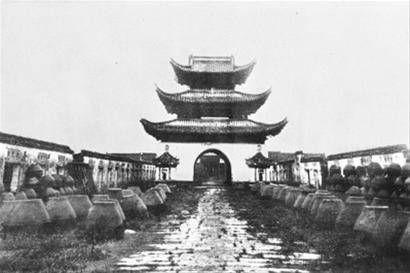
Jiangnan Gongyuan
In a hierarchical society, absolute equality can never be achieved, and rulers sometimes deliberately maintain this hierarchical difference.
Imperial examination, known as the imperial court set up a subject, everyone can vote for it, but in fact, the imperial court has clear restrictions on the identity of those who participate in the imperial examination. It was stipulated in the Tang Dynasty that "there is a son of a criminal, and business is special" and no tribute is allowed. In the Song Dynasty, "those who are disobedient, forget their relatives, hide industrial and commercial differences, and return to the vulgar" and the home of medical wizards were not allowed to participate in the imperial examination; In the Liao Dynasty, "doctors, priests, butchers, traders, slave slaves, parents, offenders and fugitives are not allowed to raise Jinshi." In the fifth year of Emperor Youzhi’s reign (1105), it was also stipulated that "merchants’ homes should be forbidden to be promoted by scholars". The Jin Dynasty stipulated that all kinds of craftsmen and artists who advocated excellence, entertainers, handmaiden, criminals, relatives of traitors and even the official Taichang Grand Music Department were not allowed to take part in the imperial examination. In the Yuan Dynasty, there was still a rule that "those who advocated excellence and those who suffered from waste diseases and committed ten evils of rape and theft were not allowed to take the exam". However, people with yin and yang medical skills are not prohibited.
When Sai-jo was in power, Prime Minister Huolu Huosun and others said that "Confucian officials, Yin and Yang, and medical skills all make an attempt". The restrictions on criminals are understandable, and the restrictions on the homes of industrial and commercial medical actors and handmaiden are obvious discrimination. In the Ming Dynasty, the regulations were relatively relaxed. In the fourth year of Hongwu, Taizu Zhu Yuanzhang ordered that "only petty officials are not allowed to take exams because their minds are broken". He doesn’t want those petty officials who have been polluted by officialdom to enter the ranks of officials.
In the seventeenth year of Hongwu, it was also stipulated: "Its academic officials and idle officials, those who advocate Excellence, those who have been exiled, and those who have lost their parents are not allowed to take the exam." In the Ming Dynasty, especially in the middle and late period, a large number of children from industrial and commercial families took part in the imperial examination, and they entered the official position in the pilot test. The progress of society, the growth of industrial and commercial class and the change of universal values are the reasons. By the Qing Dynasty, it was still stipulated that the house of handmaiden advocating Excellence was not allowed to take part in the imperial examination, and other untouchables, including beggars, beggars and fishermen with nine surnames, were not allowed to take part in the imperial examination. During the Yongzheng period, although they were ordered to get rid of the low-ranking members such as Huole, and the restrictions on their participation in the imperial examination were lifted in name, it was still difficult to achieve a completely equal status in practice.